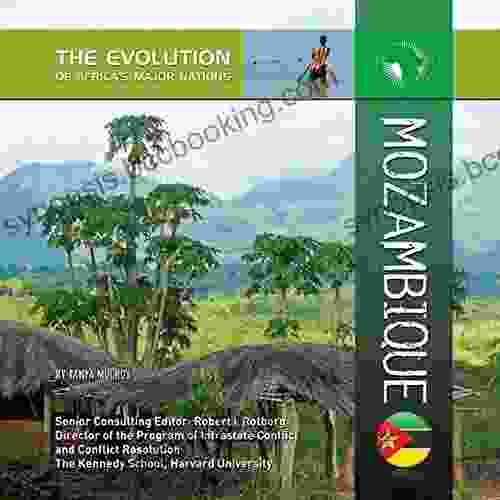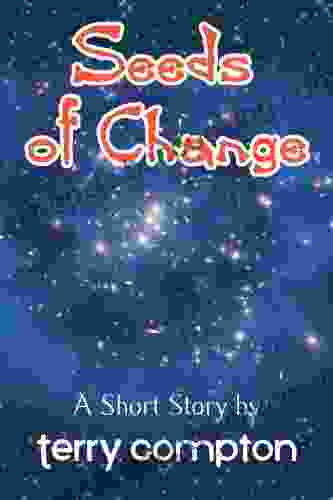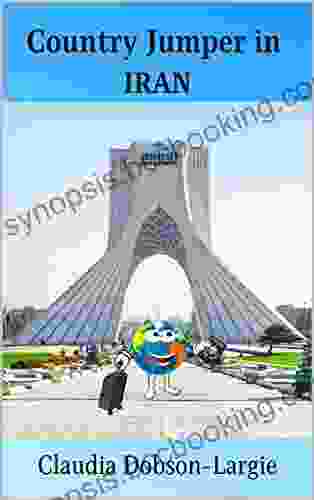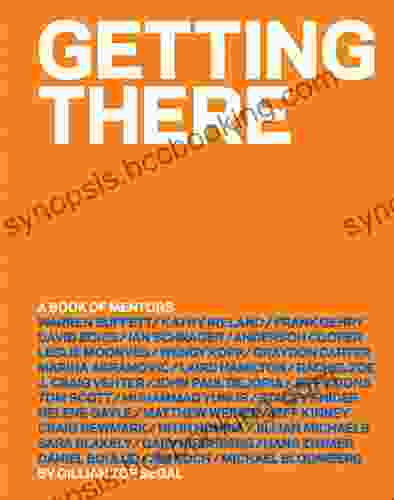Mozambique: The Evolution of Africa's Major Nations

Mozambique is a country located in southeastern Africa. It is bFree Downloaded by Tanzania to the north, Malawi and Zambia to the west, Zimbabwe to the southwest, South Africa to the south, and the Indian Ocean to the east. Mozambique is the eighth-largest country in Africa, with an area of 801,590 square kilometers (309,110 square miles). The country has a population of over 30 million people, making it the fourth-most populous country in southern Africa.
4.7 out of 5
| Language | : | English |
| File size | : | 10792 KB |
| Text-to-Speech | : | Enabled |
| Screen Reader | : | Supported |
| Enhanced typesetting | : | Enabled |
| Word Wise | : | Enabled |
| Print length | : | 110 pages |
Mozambique is a land of great diversity, with a wide range of landscapes, climates, and people. The country is home to some of the most beautiful beaches in Africa, as well as a number of national parks and reserves. Mozambique is also a country with a rich history and culture, and its people are known for their warmth and hospitality.
History of Mozambique
The history of Mozambique can be traced back to the Bantu migrations that occurred in the first millennium AD. The Bantu people moved into the area from the north and east, and they eventually established a number of kingdoms and chiefdoms. The Portuguese arrived in Mozambique in the 15th century, and they quickly established a trading post at Sofala. The Portuguese gradually expanded their control over the area, and by the 16th century they had established a colony that stretched from Mozambique Island to the Zambezi River.
The Portuguese ruled Mozambique for over 400 years, and during this time they left a lasting impact on the country. The Portuguese introduced Catholicism to Mozambique, and they also built a number of forts and trading posts. The Portuguese also had a significant impact on the economy of Mozambique, as they established a number of plantations and mines.
Mozambique gained independence from Portugal in 1975, and the country has since been ruled by the Mozambique Liberation Front (FRELIMO). FRELIMO is a socialist party, and it has pursued a number of policies that have aimed to improve the lives of the people of Mozambique. These policies have included land reform, education reform, and healthcare reform.
Culture of Mozambique
The culture of Mozambique is a blend of African, Portuguese, and Indian influences. The country is home to a number of different ethnic groups, each with its own unique traditions and customs. The official language of Mozambique is Portuguese, but there are also a number of other languages spoken in the country, including Bantu languages and Swahili.
Mozambique has a rich musical tradition, and the country is home to a number of different types of music, including marrabenta, timbila, and hip hop. Mozambique is also known for its traditional dance, and the country's dancers are often featured in international dance competitions.
Mozambique is a country with a strong sense of community, and the people of Mozambique are known for their warmth and hospitality. The country is also known for its vibrant nightlife, and there are a number of bars and nightclubs in Mozambique's major cities.
People of Mozambique
The people of Mozambique are diverse, and they come from a variety of different ethnic groups. The largest ethnic group in Mozambique is the Makua, who make up about 40% of the population. Other major ethnic groups include the Shona, Ndau, Yao, and Tsonga.
The people of Mozambique are generally poor, and the country has a high rate of illiteracy. However, the people of Mozambique are also known for their resilience and their determination to improve their lives. The people of Mozambique are proud of their country, and they are working hard to build a better future for themselves and their children.
Economy of Mozambique
The economy of Mozambique is based on agriculture, mining, and tourism. The country is a major producer of cashew nuts, cotton, and sugar. Mozambique also has a number of mineral resources, including coal, natural gas, and titanium. Tourism is a growing industry in Mozambique, and the country is home to a number of beautiful beaches and national parks.
The economy of Mozambique has grown rapidly in recent years, and the country is now one of the fastest growing economies in Africa. The government of Mozambique has implemented a number of policies that have aimed to improve the economy, including tax reforms, investment incentives, and infrastructure development.
The government of Mozambique is also working to reduce poverty and improve the lives of the people of Mozambique. The government has implemented a number of social welfare programs, including food security programs, healthcare programs, and education programs.
Society of Mozambique
The society of Mozambique is a complex and diverse mix of African, Portuguese, and Indian cultures. The country is home to a number of different ethnic groups, each with its own unique traditions and customs. The official language of Mozambique is Portuguese, but there are also a number of other languages spoken in the country, including Bantu languages and Swahili.
Mozambique is a patriarchal society, and men generally have more power and authority than women. However, women are playing an increasingly important role in society, and there are a number of women in positions of leadership in government and business.
Mozambique is a country with a strong sense of community, and the people of Mozambique are known for their warmth and hospitality. The country is also known for its vibrant nightlife, and there are a number of bars and nightclubs in Mozambique's major cities.
Mozambique is a country with a rich history, culture, and people. The country has faced many challenges in its past, but it is now on the path to progress and development. The people of Mozambique are proud of their country, and they are working hard to build a better future for themselves and their children.
4.7 out of 5
| Language | : | English |
| File size | : | 10792 KB |
| Text-to-Speech | : | Enabled |
| Screen Reader | : | Supported |
| Enhanced typesetting | : | Enabled |
| Word Wise | : | Enabled |
| Print length | : | 110 pages |
Do you want to contribute by writing guest posts on this blog?
Please contact us and send us a resume of previous articles that you have written.
 Book
Book Novel
Novel Page
Page Chapter
Chapter Text
Text Story
Story Genre
Genre Reader
Reader Library
Library Paperback
Paperback E-book
E-book Magazine
Magazine Newspaper
Newspaper Paragraph
Paragraph Sentence
Sentence Bookmark
Bookmark Shelf
Shelf Glossary
Glossary Bibliography
Bibliography Foreword
Foreword Preface
Preface Synopsis
Synopsis Annotation
Annotation Footnote
Footnote Manuscript
Manuscript Scroll
Scroll Codex
Codex Tome
Tome Bestseller
Bestseller Classics
Classics Library card
Library card Narrative
Narrative Biography
Biography Autobiography
Autobiography Memoir
Memoir Reference
Reference Encyclopedia
Encyclopedia Giles Milton
Giles Milton Paul R Niven
Paul R Niven Gladys Aylward
Gladys Aylward Gerald A Moore Sr
Gerald A Moore Sr Gerald L Geison
Gerald L Geison Geoffrey West
Geoffrey West Susan Taylor Brown
Susan Taylor Brown Duncan Wells
Duncan Wells Timm Woods
Timm Woods George Kozmetsky
George Kozmetsky Gary Sutton
Gary Sutton Susan Srikant
Susan Srikant Jean Haner
Jean Haner Taras Grescoe
Taras Grescoe Neela Vaswani
Neela Vaswani Gerri Leen
Gerri Leen Sir Oliver Lodge
Sir Oliver Lodge Gaston Migeon
Gaston Migeon Gemma Rogers
Gemma Rogers Gavin Francis
Gavin Francis
Light bulbAdvertise smarter! Our strategic ad space ensures maximum exposure. Reserve your spot today!
 Isaac AsimovFollow ·18k
Isaac AsimovFollow ·18k Jared NelsonFollow ·6.9k
Jared NelsonFollow ·6.9k Roger TurnerFollow ·17.9k
Roger TurnerFollow ·17.9k Patrick RothfussFollow ·17.2k
Patrick RothfussFollow ·17.2k Lee SimmonsFollow ·12.6k
Lee SimmonsFollow ·12.6k Jared PowellFollow ·2.4k
Jared PowellFollow ·2.4k Carson BlairFollow ·5.8k
Carson BlairFollow ·5.8k Neil GaimanFollow ·16.6k
Neil GaimanFollow ·16.6k
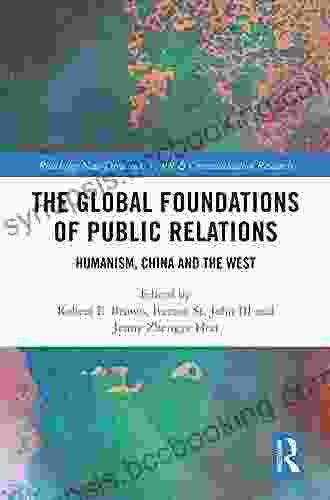
 Robert Heinlein
Robert HeinleinUnveiling Humanism in China and the West: A Journey...
In our rapidly...

 Brian Bell
Brian BellBlind Boy's Unwavering Struggle Against Abuse and the...
In the tapestry of...

 Craig Carter
Craig CarterBuilding Wealth While Working for Uncle Sam: The Ultimate...
## ### Are you a federal employee who wants...
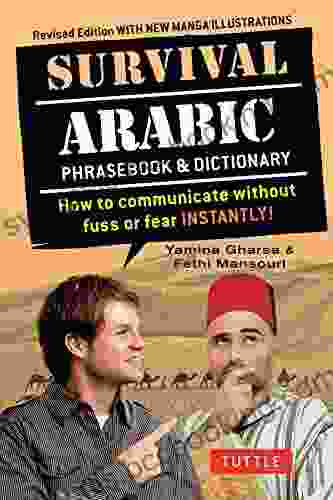
 Raymond Parker
Raymond ParkerUnveiling the Secrets of Arabic Survival: The Ultimate...
Embarking on a journey to unravel the...
4.7 out of 5
| Language | : | English |
| File size | : | 10792 KB |
| Text-to-Speech | : | Enabled |
| Screen Reader | : | Supported |
| Enhanced typesetting | : | Enabled |
| Word Wise | : | Enabled |
| Print length | : | 110 pages |


